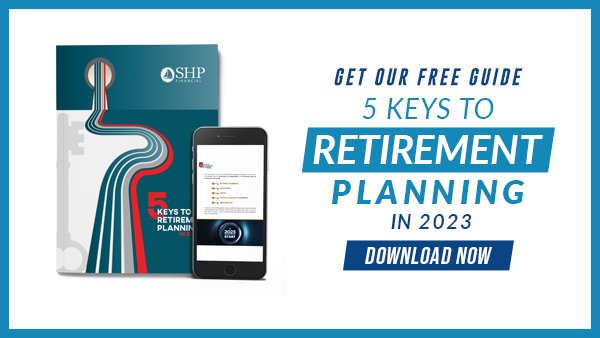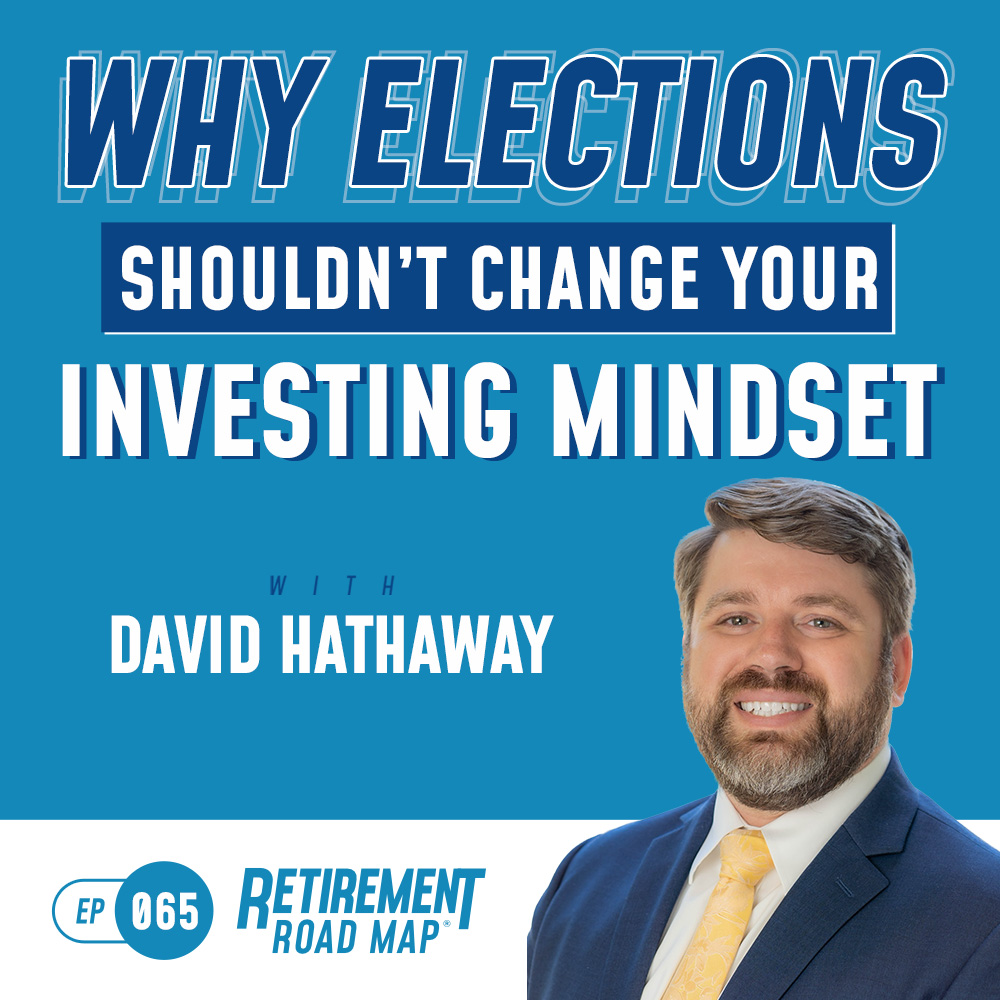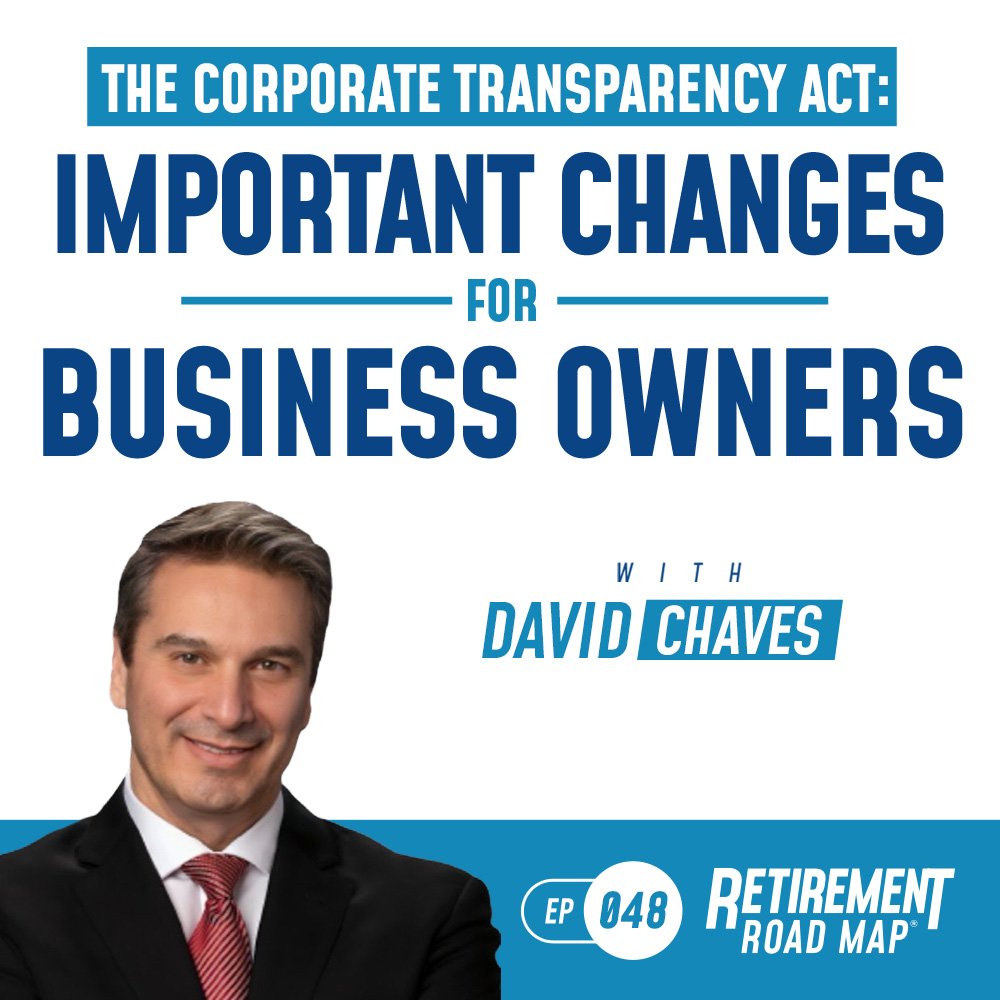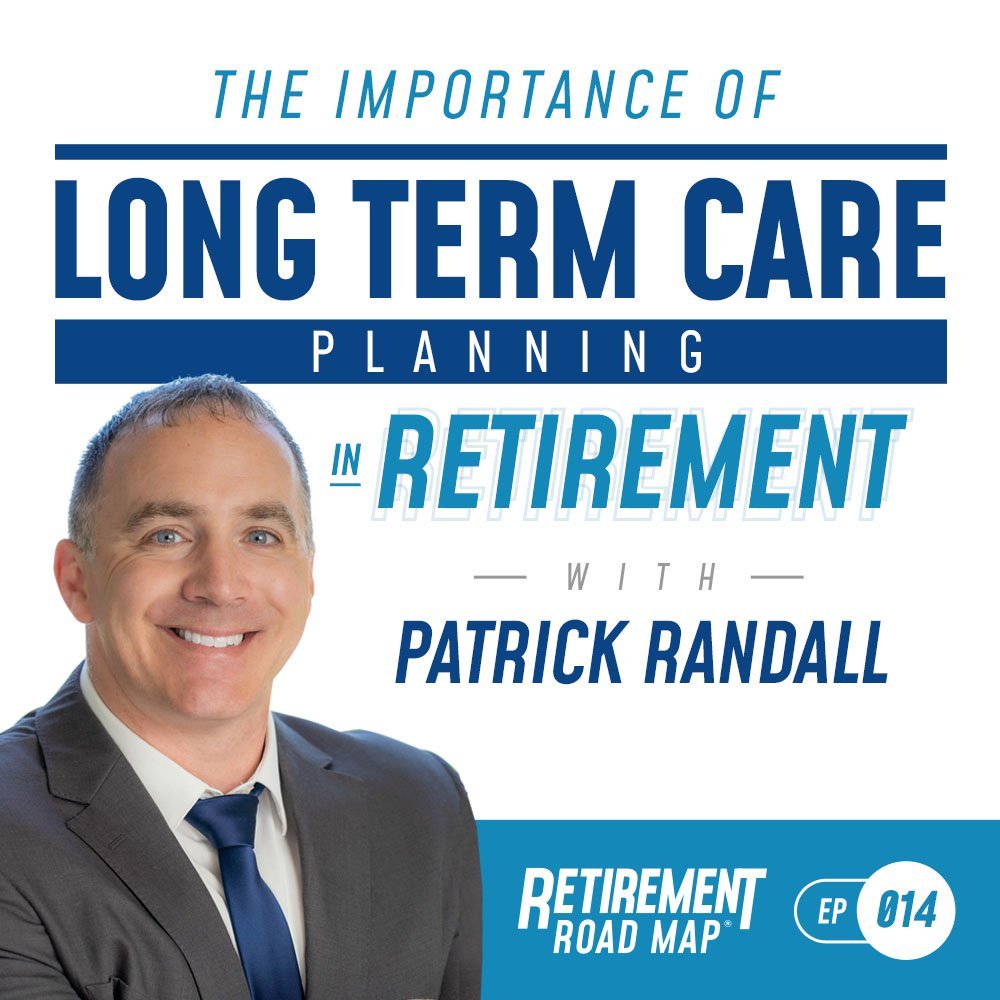If you’re buying a home or thinking about refinancing your existing mortgage, you’ve probably got a lot of questions: what are interest rates going to be? Are these high interest rates here to stay forever? How much equity can I unlock to pay bills or renovate my home?
We’re thankful to have Nate Hartseil from Main Street Home Loans with us today to walk us through the current mortgage landscape and what your options might be, whether you’re looking to buy or sell.
In this conversation, we explore when, why and how the Fed may finally cut interest rates, strategies you can use to retire debt for you and your family, and how to get out from under debts that might be weighing you down.
In this podcast discussion, you’ll learn:
- Why Nate believes we’re approaching the light at the end of the tunnel when it comes to the housing market.
- Why so many Americans are living paycheck-to-paycheck and why debt is on the rise.
- The two types of refinances you can use to free up disposable income.
- When, why, and how to write a reverse mortgage.
Inspiring Quotes
- “Over the last couple years, your average family household has acquired a lot of revolving debt. That being said, it’s a good time to retire your debt. So, cash-out refinances and home equity lines just in the last month were up 36% as rates continue to trend down.” – Nathan Hartseil
Resources
- Main Street Home Loans
- Main Street Home Loans on Facebook | Instagram | LinkedIn | YouTube
- Nathan Hartseil on LinkedIn | Facebook | X/Twitter
- Jamie Dimon
Matthew Peck: Welcome, everyone, to another edition of SHP Financial’s Retirement Roadmap podcast. I’ll be your host today, Matthew Peck, joined by my partner, Keith Ellis. How are you doing, Keith?
Keith Ellis: Good. How are you, Matt?
Matthew Peck: I’m doing very well.
Keith Ellis: Excited for our guest.
Matthew Peck: Yes, absolutely. It’s a recurring guest. I mean, he’s been here before. And so, I mean, I guess we didn’t scare him away.
Keith Ellis: He’s a veteran at this. Yeah. We didn’t scare him away. Exactly.
Matthew Peck: We didn’t scare him away at all. Right. So, for all of our listeners right now, if you have questions about the residential mortgage landscape, thinking about things like home equity or, are we going to buy a home and what are the rates going to be? And what type of strategies there are to navigate the higher interest rate environment? Are we anticipating rates to be cut in the future as we talk a lot about it on the financial planning end of things? But what are the mortgage brokers out there looking at? As I mentioned, we are joined by Nate Hartseil. He joined us before, and kind of walked us through his background in this space but he represents Main Street Home Loans. Hopefully, I got that right. Nate, you’re going to have to, obviously, I’m not a professional at this either, as you can see. But he’s been in the field now for many, many years and he’s a recurring guest to kind of help all of our listeners walk through the current mortgage landscapes, what options are, buying a home, selling a home, whatever that may be. And so, without much further ado, Nate Hartseil, thank you for joining us again.
Nathan Hartseil: Well, Matt, Keith, thanks for having me. Long-time listener.
Matthew Peck: Yeah.
Keith Ellis: Yeah, yeah.
Matthew Peck: I appreciate that. We have one or two. Yeah.
Keith Ellis: I don’t know why we laughed at that. He probably is. Hopefully, he’s a long-time listener. You know what I mean? Hopefully, that’s not a joke.
Matthew Peck: So, Nate, okay, so here we are coming into 2024. You know, what are your expectations? I’ve heard things were slow in 2023. And was that purely because of interest rates or was there other factors at play and how does 2024 look?
Nathan Hartseil: Well, great question. And it’s a better time to be here than last time because I think last time we were in kind of the downswing and now we see light at the end of the tunnel, which is really, really good. There are some factors that are playing into kind of a stale market right now. Refinances are up because US personal debt within households has exceeded $1 trillion for the first time in history. So, over the last couple years, your average family household has acquired a lot of revolving debt. That being said, it’s a good time to retire your debt. So, cash-out refinances and home equity lines just in the last month were up 36% as rates continue to trend down.
Matthew Peck: Wow.
Nathan Hartseil: Two months ago, if I was sitting here, we’d be at 8%. Now, we’re probably somewhere in the sixes, which is a big swing over a couple of months period. The Feds have come out and said that their intention is to lower rates three times over the course of 2024 and follow it up into 2025. Now, Wall Street Journal kind of beat the Feds to the punch. And they came out and predicted closer to 5 or 6 times in 2024, and an additional 2 to 4 times in 2025, which should put us at a target by end of 2024 somewhere maybe around 5.5%. And with any luck, in 2025, hopefully, somewhere in the low fives to high fours, which would really put a spark in the market we’re at right now.
Matthew Peck: Well, let me ask you that because I’m aware that in regards to the Federal Reserve, I mean, when we talk about the Fed cutting rates, I know primarily they’re talking about the shorter end of the curve. So, when the Fed cuts rates, it’s on the overnight lending. So, it’s on more of the shorter-term rates. So, how does the Fed cutting short-term rates affect long-term rates?
Nathan Hartseil: Sure. Great question. So, the Fed, you’re right. It will mostly affect cars, revolving lines of credit which are extremely high right now. So, it gives confidence in the market. And when there’s confidence in the market, the bond market usually tends to do a little bit better. And when the bond market does a little bit better, mortgage rates are basically built off the yield between the long-term and ten-year Treasury. So, we should see a little bit of movement in the mortgage industry just because you remember when we were back in the Feds, we’re like at 1% with interest rates. Everybody was calling like, “Hey, can I get that 1% rate?” It doesn’t work that way. Mortgage rates heavily trend off the ten-year treasury.
Matthew Peck: Of the 10-year, not the 30-year?
Nathan Hartseil: The 10-year.
Matthew Peck: Interesting. Okay. All right. That works. And so, I know Keith and I have some questions too but you mentioned also, Nate, about you said that the total amount of debt that households have. Now, is that because of mortgages? Is that because of credit cards? Is that the impact of student loans? Kind of what’s really driving that up right now?
Nathan Hartseil: Sure. Well, the cost, period, inflation, household expenditures just went up dramatically over the last two years, which people realized their normal salary couldn’t support their normal lifestyle or just kind of day-to-day expenses for your family. 60% of the US right now is living paycheck to paycheck.
Matthew Peck: How many? 60%?
Nathan Hartseil: 60%.
Keith Ellis: Wow. Yeah.
Nathan Hartseil: And another crisis we have in the mortgage industry right now is 70% of homes in the United States are owned by people 50 years old or older. Your average age of 19 to 29 years old right now, 60% are living at home with mom and dad.
Matthew Peck: Wow. Okay. Yeah, that’s a heavy majority.
Nathan Hartseil: It is. So, what we have now is 30 million homes that need to be turned over from one generation to the next, but inflation is causing this younger generation…
Keith Ellis: To kind of step away from the idea of homeownership, correct?
Nathan Hartseil: They are until either prices of homes come down, level out, inflation comes down. So, the cost of expenditures comes down or the everyday income goes up.
Matthew Peck: So, it has to be one of those three factors that really kind of kicks it out.
Nathan Hartseil: Mom and dad can always give a nice gift of equity to their children.
Keith Ellis: And you mentioned earlier, home equity line and cash-out refinance. Those are terms in that industry but a lot of people that listening might not really know what that means or what the difference is. I don’t know if you can expand on that a little bit because I know there are both ways to kind of control or pay down debt but I don’t know which one kind of work best in this environment or just kind of maybe an idea of what both are.
Nathan Hartseil: Sure. So, predominantly a home equity line of credit, which is the HELOC, is a revolving line of credit. What that means is it’s close to a credit card. You can get by just paying the monthly interest every single month. Now, you never get anywhere paying it down. This is based off the short-term interest rate. So, this would be based more off the Fed prime rate, which is 8.5 right now. So, you’re lucky on a home equity line right now to either get prime or prime minus a half. So, you’re talking 8% to 8.5% interest only right now on a second mortgage.
Keith Ellis: That can fluctuate, correct, typically?
Nathan Hartseil: It can. So, this is a second mortgage on your home. So, it takes second lien position. That being said, right now, you can cash out on the equity of your home because let’s face it, even though we’ve been in kind of a stale market the last couple of years, especially in Massachusetts, homes have still gained anywhere from 4% to 11% than pure equity increase. So, a lot of people, even if you purchased two years ago, four years ago, are sitting on a nice pile of equity right now. And knowing rates are going to come down in the future, now is an optimal time to retire your debt. So, if you’re sitting on $15,000, $30,000 worth of debt, it’s going to be cheaper in the long run right now to do a cash-out refinance, say maybe at high sixes, low 7% because let’s face it, your credit cards are 22, 29.
Matthew Peck: Right. Yeah.
Keith Ellis: Double digits for sure.
Nathan Hartseil: Exactly. So, to retire that debt is going to free up more disposable income monthly for your family. Now, there are two types of refinances when it comes to your normal fixed-rate refinances. And that’s a rate in term or a cash-out. A cash-out will have a premium on the interest rate. So, you pay slightly higher but you only have to keep that loan for six months before you can refinance it again. So, my company, what we have done recently and a lot of companies have followed suit on this, knowing that rates are going to come down over the next, we’ll call it 6 to 18 months, our offering a five-year guarantee. When you do a refinance or purchase with us now and then refinance within the next five years when rates drop, we’ll pay all your lender fees and appraisal fee so you can retire all of your debt right now by using the equity in your home, freeing up more disposable monthly income for your family. And then when rates hit 5.5%, 5% again, we can reset that mortgage back to a nice, comfortable rate for the remainder of the term.
Keith Ellis: Is that a one-time thing or is it like, “Hey, now the rates are now I’m at seven. Now, I want to go to six then I want to go to five, and I want to go to 4.5.” How does that work?
Nathan Hartseil: Well, Keith, that’s how you do.
Keith Ellis: I mean, how does that work?
Nathan Hartseil: So, yeah, we can offer that multiple times in the market.
Keith Ellis: Wow. That’s fantastic.
Matthew Peck: All right. So, let me make sure I understand you. So, you have the home equity line where you have this open line and it moves up and down depending on how much you borrow. Okay. This cash out is you’re automatically getting a certain amount coming out no matter what happens. So, it’s not like this, like, “Oh, you have an open line and you can borrow what you want.” The cash out is, “Okay. Here is a check for 50,000 or…”
Keith Ellis: 20,000, whatever.
Matthew Peck: Right. I guess, yeah, but what sizes do you generally see?
Nathan Hartseil: It’s usually up to 80% loan-to-value.
Matthew Peck: Okay.
Nathan Hartseil: So, you’ll take the value of your home times 80% minus what you currently owe on it. And that’s how much cash you actually have to really do what you want, purchase another property, pay off your debt, gift it to your 25-year-old still living at home in the basement so he can go buy a house.
Matthew Peck: Yeah. And I guess you do see people do it for all those different reasons?
Nathan Hartseil: Well, I do and, commonly, which really applies to your industry right now, let’s face it, the last couple of months, the market’s done really well. So, it still doesn’t alleviate the fact that people are still on hard times, costs have went up. So, instead of tapping into your investments that are doing 7%, 10%, 15%, 20%, you can take the equity out of your home, say high sixes, low sevens right now, and then your investments keep trading at a much higher rate to offset that interest.
Matthew Peck: And then as you mentioned, you could do it for any reason. So, it’s for renovations if you want to or whatever that may be or if you want to pay off a car loan or a credit card loan or whatever that may be.
Nathan Hartseil: Absolutely. And if you’re afraid that you don’t have enough equity in your house and to your point about renovations, we do offer renovation loans. And this would be more specific to people without a lot of equity because the renovation loan then is based off the future appraised value. So, if you’re adding value in addition or if you’re adding value to the home, it’s based off the end value.
Matthew Peck: Now, is that the same thing as a construction loan or is that different?
Nathan Hartseil: It’s different. We don’t do a lot of ground-up construction, but pretty much renovation loans. As long as you’re leaving a foundation and a wall, you can pretty much modify the rest of the home.
Matthew Peck: Is that the whole idea of a construction loan? Is that kind of doesn’t really common in sort of Eastern Mass. because generally you’re seeing more renovations or not a lot of homes to be built out here. I mean, the single-family homes, no one’s building them anymore. All right. So, that’s why construction or ground-up, you said aren’t really common on the East Coast do you think or at least where we are?
Nathan Hartseil: Well, so we’re a direct lender. And we do hold a very large portion and service set depending on the market and where the market’s at right now. Construction loans are kind of a whole different realm because you’re holding it longer and you’re managing drawdowns. There’s multiple appraisals as each phase of the development is done. So, they’re a lot more costly to do as well. It’s basically a whole division that manages construction loans.
Matthew Peck: I mean, I think that’s the biggest thing Keith has to offer up before, but just more how big this universe is blows my mind, right? Because it’s like you have the construction side of it. You have the home equity line of it. People ask about reverse mortgages. I mean, it’s like it goes on and on.
Keith Ellis: And then you talk about different types of loans. Okay. Now, we have fixed versus ARM. And I was wondering if you could expand on that a little bit because a lot of folks are coming in kind of thinking the same thing is like, “Hey, look, right now a five-year ARM or seven-year, whatever, ten-year ARM, the rates are a lot, well, I shouldn’t say a lot, but lower than your fixed. So, what I’ll do is I’ll take an ARM, let the rate fluctuate, hopefully, the rates go down over the next five years and then refinance. Is that common?
Nathan Hartseil: Well, it was. And let me tell you why. Because the market didn’t know where we were going until the feds kind of made the last announcement, “Okay. We’re ready to start cutting rates.” When it was on the up and up, the ARMs were very, very prevalent because the market anticipated that rates were going to continue to rise. Now, that rates are predicted to lower, there’s no money in short-term mortgages right now because a 95% rate that any mortgage we wrote last year, halfway through the year before, and any mortgage we wrote this year will be refinanced within the next 12, 18 months.
Keith Ellis: Has to be.
Nathan Hartseil: Yeah.
Keith Ellis: Makes no sense not to.
Nathan Hartseil: So, the adjustable rate is really kind of leveled off with the fixed rate. And one of the reasons we’re offering the five-year guarantee is because the loans we’re writing right now, we’re lucky to break even on these loans. There’s really not a lot of money in them right now. There will be in the future for the refinance, so it’s worth keeping that client for the future.
Matthew Peck: Okay. And then back over quickly in the cash-out home equity or that I’d say, is it called a cash-out home equity or what’s the official term?
Nathan Hartseil: So, home equity line is the second mortgage. Cash-out refinance is modifying, well, reworking your first mortgage on your home.
Matthew Peck: So, that would be a fixed though. That’d be a fixed rate.
Nathan Hartseil: You can do either but predominantly a fixed rate.
Matthew Peck: Okay. Is there a traditional home equity that’s fixed or, no, home equities are always floating?
Nathan Hartseil: No, they do offer a fixed-rate home equity but once again they’re still based predominantly off the Fed prime rate, which is much higher right now, especially with the long-term trending downward.
Matthew Peck: Okay. All right. And then back to kind of like retiring debt that you mentioned because I asked about like student loans and, Keith, I’m curious how it comes up with your clients but generally, I’d probably say at least, I don’t know, let’s say once a day but, I mean, almost like every review people talk about, “Hey, I have this car loan. Should I pay it off?” Or I mean, credit card loans are pretty easy, right? I mean, obviously, anything 15%, 18%, yeah, I pay that off first, I guess, how often? I mean, is it mainly renovations like we’re talking about or is it when people retire debt, is there one thing besides credit cards which is the obvious one, are there other debts that people target? Is it the car loans? Is it the student loans? How do you see people using that tool?
Nathan Hartseil: Sure. Great question. Because it really has to do with the current market. You know, when car loans were at 2% and 3%, nobody cared. Car loans now 6%, 8%, 9%, people care. So, I do see a little turn and what they’re geared for now. When rates were low, everybody was cashing out to buy more properties. Now, I do see it mostly credit card debt, revolving debt, things you just can’t get out from under because if you owe $20,000, $30,000, you can make that minimum monthly payment and still raise your family. However, if you want to get anywhere with that, you need to make large, large chunks or you’re really not getting anywhere.
Keith Ellis: You’re running on a treadmill.
Nathan Hartseil: Yeah, exactly. And you can spread that over 30 years with a fixed rate on your mortgage. And we can show blended rates, short-term, long-term. So, with clients, we can do a complete financial analysis and show them the benefits. And maybe some of the best things to pay off, maybe some of the not-so-good things to pay off.
Matthew Peck: Right. Because I was going to say, especially Keith, I don’t know how often you see it but I’m surprised that very often I do have clients that come in with 5,000, 10,000, sometimes $15,000 with a credit card debt. Even savers will sometimes come in and they’ll have a lot saved, but then they’ll also have credit card debt. I think it’s by far just, you know, maybe it’s the whole slippery slope thing but it’s just such an easy thing to just pay off or pay a little bit here.
Keith Ellis: Yeah. People want to keep their lifestyle. You know what I mean? Even in this rising inflation environment, yeah, I don’t see many people cutting back what they used to do, which then if your income isn’t going up as much as inflation or you are barely getting by prior to this recent spike in inflation, you’re going to accumulate debt. And it’s like what is the best way to attack that debt? I mean, I have a client right now, he has accumulated probably 15,000, 20,000 in debt on a credit card, and he just rolls it over every 6 to 8, maybe 12 months into a 0%. And then he aggressively attacks it and 0% aggressively attacks it. So, he might have a Visa then an Amex, then a Mastercard, back to Visa until it’s gone. I mean, if you have the patience and the wherewithal to do that, which good for him. And it’s a very smart strategy to do that. It’s probably the best way to…
Nathan Hartseil: For people who can do that.
Keith Ellis: Can do that. Exactly. That’s the other problem, right? It’s very hard.
Nathan Hartseil: What I have experienced now with people with high credit card balances.
Keith Ellis: It’s very hard to do that. Very hard.
Nathan Hartseil: Exactly. Even if you pay your debts on time and you’re making minimum payments, anytime that revolving credit line goes over what, call it, 30%, 35%, not a high credit limit, your credit score starts to come down. As your credit score starts to come down…
Keith Ellis: It’s harder to obtain the 0%.
Nathan Hartseil: Nobody’s offering you that 0% balance transfers anymore. So, mortgages are still easily obtainable.
Keith Ellis: Yeah. No, I agree. And as we start to look at like forward-looking in life, financial planning, some of the things that recently I’ve been running up against are, believe it or not, people that don’t have children. They just don’t have any kids left behind to leave anything behind to and their concern might be long-term care as they age, right? And I start to talk to them a little bit about the idea of using their home equity to pay for long-term care. And one of the, I guess, aces up their sleeve, I guess, for lack of a better way of putting it from a financial tool standpoint, could be a potential of a reverse mortgage. And this doesn’t have to be just for folks that have no family to leave money behind to. It could be for really anyone. But I think it definitely has, I guess, for lack of a better way of putting it, kind of a black eye in our industry, the way that people think of them and the way that consumers think of them. But it is something that at some point someone might have to raise their hand and say, “Look, I got to use this.” I don’t know if you could expand upon maybe what they are, how they’re used, what’s maybe changed over the last five years, if anything, around the reverse mortgage industry.
Nathan Hartseil: Sure. So, we write quite a few reverse mortgages and they’re used for various purposes. As a matter of fact, I did one for my grandparents, who had a significant amount of financial investments that were doing well. And really nobody in the family needed a house. I mean, nobody really wanted to be left the house.
Keith Ellis: Right. Yeah.
Nathan Hartseil: The investment…
Nathan Hartseil: Another great…
Matthew Peck: Yeah. Really it is.
Keith Ellis: You never think of using it that way. It’s a really smart way to use it. Go ahead. Sorry.
Nathan Hartseil: No problem. So, the investments kept trading and doing very well for them. And you can use it on a purchase or refinance. So, they did on a purchase. I think they put $50,000 down on the home. They get to live in it the rest of their life. And even if they exceed the life threshold, the insurance kicks in, and they’ll never owe anything on that house even if it’s upside down on equity.
Matthew Peck: Well, yeah. Could you just kind of walk back a little bit? Yeah. Let’s go to the basics of reverse mortgage. How does a reverse mortgage work? Pros and cons.
Nathan Hartseil: Sure. So, they’re insured based off life expectancy. And that will determine how much you either have to put down or how much you can get back. You can take it almost like a cash-out refinance or a distribution.
Keith Ellis: That’s kind of the way I look at it. Yeah.
Nathan Hartseil: Or a distribution monthly. So, you can take a lump sum or monthly distribution, and it’s based off how much equity you have versus your life expectancy versus how old you currently are.
Matthew Peck: Okay. So, just to pause there. So, okay. So, reverse mortgages, someone can pull money, pull equity out of their home in one of two ways, either a lump sum or a monthly draw.
Nathan Hartseil: Correct.
Keith Ellis: Could they also use it as like a pool? Like, okay, I don’t want a monthly draw. I don’t want a lump sum. I just want a line of credit sitting there in case I need it.
Nathan Hartseil: We don’t offer a line of credit in the reverse mortgage.
Keith Ellis: Okay. Just curious.
Nathan Hartseil: It’s usually based off the draw. Not to say that they’re not…
Keith Ellis: Because a lot of people would think of that as like, “Okay, look, I’m pulling money out. I don’t necessarily need it today but I want that revolving line open in the future. If I never use it, great, but it’s there if I need it.” You know, that would be an interesting way to use it as well. Yeah.
Nathan Hartseil: Right. That’s a great point. Now, most reverse mortgages, at least all the ones we offer, our government, they’re HUD. So, they follow FHA, Fannie Mae, Freddie Mac.
Keith Ellis: Correct.
Matthew Peck: Okay. So, whether it’s a draw or a lump sum, then what happens? So, it’s not paid back during their lifetime?
Nathan Hartseil: It is not. So, they’re not responsible for any payments principal and interest. Well, I take that back. It comes out of the equity. So, the payment is actually coming out of the equity monthly. It’s being drawn down. The borrower is responsible for taxes and insurance on the home. So, the only way they can be foreclosed on is if they don’t pay their taxes and insurance.
Keith Ellis: So, is it safe to say, okay, look, I have a $700,000 home. I take a $250,000 reverse mortgage, hence the name. It’s growing. The mortgage is growing instead of typically we pay them down.
Nathan Hartseil: It is. But you can never owe more than value.
Keith Ellis: Okay. Because you said there’s an insurance premium that you pay. Is that a closing? Like, is it part of your closing cost like this insurance? And what I mean by that, I guess, is let’s say, for instance, that same thing, $700,000 house, I take a $300,000 mortgage. I live another 20 years, the housing market collapses. My house is worth $600,000. I owe $700,000. God forbid, I pass. My kids, hypothetically, I’m $100,000 in debt. Do my kids owe that?
Nathan Hartseil: No. So, it works just like mortgage in this way.
Keith Ellis: Okay.
Nathan Hartseil: If you don’t put 20% down on a property and you default, the mortgage insurance picks up a certain portion.
Keith Ellis: So, it’s almost like a PMI.
Nathan Hartseil: Exactly.
Keith Ellis: Okay. Okay.
Matthew Peck: And then so when you’re advising people about pros and cons though, I mean, in your opinion it’s pretty good. I mean, it’s a useful tool here and there or it’s something that people really should consider? I guess, do you have an opinion on how, not popular, but how good of a tool it is?
Nathan Hartseil: So, me being in the industry since 2005, I’ve seen about anything, everything, and about every reason under the sun. So, there’s a good product for everyone because everyone has a different situation.
Keith Ellis: Different need.
Nathan Hartseil: A different need situation, family situation. And it really comes down to somebody like me and talking to somebody like me to really evaluate and put different options in front of you and your family to decide, “Is this best for me? Is this best for my family?” So, there is a person, there’s a place, there’s a time exactly for it that is ideal. I mean, I think it’s a great, wonderful product, but it’s not for everyone.
Matthew Peck: Okay. So, now along those same lines, I mean, so does Main Street Home Loans, I mean, do you guys kind of come up with your own financing? Or I guess I’m just trying to think of like when it comes to all these different options like HELOC and Reverse Mortgage and all that stuff, is it something that you can kind of shop around and find the option? Or I guess, how do you learn about all the tools that you then eventually present to the client?
Nathan Hartseil: So, it’s a little bit of both. We are direct lender. What that means is we have our own products, whether it be conforming, non-conforming. We have our normal conventional, which means you follow Fannie Mae or Freddie Mac guidelines. We have our government. So, we write FHA, VA, USDA. We also have our own portfolio, which means they’re our own products we keep. We’re also correspondent which means we write it, we fund it, but it has an outlet that it immediately goes to. We also broker, which means that there are some non-QM which means qualified mortgage. Some very unique products out there that we broker more in line to what you just said. Do you shop around to see who has the best product on it? That’s more of a broker. And there are products that we do broker but we do quite a bit in-house. I’d say probably well over 80%, if not 90, is our products.
Matthew Peck: And this is something you mentioned about 2005. So, literally, it almost feels like it would probably take a good decade to learn all these different options, if not more. I mean, if someone is just entering the industry, how long do you think that let’s just say I’m out there. I’m like, “Oh, hey, sir. How long are you in the industry?” And if someone says, “I’m in there for three years,” it’s like, “Ooh, they might not know as much as obviously someone with ten years.” I mean, I guess in your opinion, how hard is it to kind of wrap your head around all the different options, especially when you first start?
Nathan Hartseil: Sure. I mean, I’ve done quite a bit from credit analyst, commercial. I wrote bond prospectus. I’ve done feasibility studies, international and domestic. I started my career with Bear Stearns.
Matthew Peck: Oh geez. There it is.
Nathan Hartseil: Then when Bear went under in ’07, I lost my job and worked for Lehman Brothers. Got a paycheck or two.
Keith Ellis: Seems like a good succession.
Matthew Peck: Absolutely, right. Yeah.
Nathan Hartseil: Got a paycheck or two and then…
Keith Ellis: They went under?
Nathan Hartseil: Went into commercial for a while and, I mean, just kind of going off subject a little, what we just went through I think in the mortgage industry was worse than 2008 to 2010.
Matthew Peck: Oh, really?
Nathan Hartseil: At least from what I’ve experienced.
Matthew Peck: Just like the icing of the market itself and just how like the plummeting of loans.
Keith Ellis: It was just basically lost.
Nathan Hartseil: I do. When everybody thinks that was the great downfall, I mean, at least we knew why then. And this was for different reasons than it was then. So, when it comes to experience, somebody who’s been in the industry and seen I’ve probably been through a downswing three times now since I’ve been in the market. And it helps me instruct some of our newer employees like what to do, how to get through these markets are going to come. I think after this last downswing now, if projections are right, we should write out a pretty decent market now for a decade or more.
Matthew Peck: Oh, excellent. Okay. So, it’s really just sort of reset the landscape and now we’ll gain traction and be able to, especially, as you mentioned, if they could continue to cut rates then the refinancing side of it really starts to kick in.
Nathan Hartseil: And a lot will coincide with the market itself too. I mean, I don’t know if you guys saw Jamie Dimon came out over the weekend and said, “If we don’t cut spending from the top down, we have ten years.” So, that could definitely affect it. But if things stay pretty stable in the economy, we should at least be able to ride out a good mortgage industry for the next decade or more.
Matthew Peck: That’s good to hear. All right. So, then last question. More on the fun stuff. So, okay, if here you are spending Monday through Friday, 9 through 5 if not longer studying all these different options and conforming, non-conforming, reverse mortgages, all the stuff. So, what are we doing for fun? Are we doing this on the weekends too?
Keith Ellis: What’s our do life stuff?
Matthew Peck: Yeah. Right. Exactly.
Nathan Hartseil: Well, my office, we kind of unwind on Fridays. So, we do Bourbon on Main Street. I keep a bourbon bar in the corner of my office.
Matthew Peck: Very nice.
Nathan Hartseil: And we usually try to bring in somebody local, more like trades or something, and just kind of chit chat. Try a new bourbon. I have to say, it went to the wayside but I think we’re going to bring that back soon. So, we’ll see you guys shortly.
Matthew Peck: Yeah. Right. We’ll see you in Bourbon on Main Street. Well, Nate Hartseil, thank you so, so much. Again, for all of our listeners, it’s Nate Hartseil from Main Street Home Loans.
Nathan Hartseil: Thank you very much.
Matthew Peck: We’ll be able to put all of it, all of his contact information on the show notes and different things along those lines. But you’ve been a great valued partner to SHP for years.
Keith Ellis: Helped a lot of clients. I appreciate it.
Nathan Hartseil: Thank you.
Matthew Peck: Exactly, helping our clients both personally and professionally. So, Nate, really appreciate you coming on the show. And so, for all of our listeners, hopefully, you enjoyed a little mortgage and refinancing talk. You can always reach out to Nate any time or reach out to your advisors to learn more. And hopefully, you found it informative and look forward to the next time, so be well.
Certain guides and content for publication were either co-authored or fully provided by third party marketing firms. SHP Financial utilizes third party marketing and public relation firms to assist in securing media appearances, for securing interviews, to provide suggested content for radio, for article placements, and other supporting services.
The content presented is for informational purposes only and is not intended to offer financial, tax, or legal advice, and should not be considered a solicitation for the purchase or sale of any security. Some of the informational content presented was prepared and provided by tMedia, LLC, while other content presented may be from outside sources that are believed to provide accurate information. Regardless of source, no representations or warranties as to the completeness or accuracy of any information presented are implied. tMedia, LLC is not affiliated with the Advisor, Advisor’s RIA, Broker-Dealer, or any state or SEC-registered investment advisory firm. Before making any decisions, you should consult a tax or legal professional to discuss your personal situation. Investment Advisory Services are offered through SHP Wealth Management LLC., an SEC-registered investment advisor. Insurance sales are offered through SHP Financial, LLC. These are separate entities. Some supervised persons of SHP Wealth Management, LLC, are independent licensed insurance agents of SHP Financial, LLC. No statements made shall constitute tax, legal, or accounting advice. You should consult your own legal or tax professional before investing. Both SHP Wealth Management, LLC. and SHP Financial, LLC. will offer clients advice and/or products from each entity. No client is under any obligation to purchase any insurance product.









